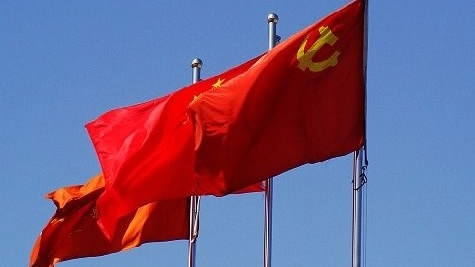It is no state secret that President Xi Jinping, during his five years as China’s most senior leader, not only has strengthened the Party’s role in the governance of China, but also has extended the Party’s reach into global governance.
There is still much we need to know about how the new Communist Party of China (CPC), through innovation, is bringing the world together to build a “a community with a shared future for all humanity.” Let’s get Closer To China.
Ruling Philosophy: CPC's Perpetual basis vs. Western Election
Compare political parties in foreign countries with the CPC in terms of how they rule their countries, and one starts with the obvious: The CPC is the ruling party on a perpetual basis, while in western countries, in most countries, political ruling status is based on elections. But in both cases, there is a process of ruling.
“To be frank, I think the Communist Party of China, which is ‘共产党’ in Chinese, should not be translated as a ‘party’ because ‘party’ both in Chinese and Latin originally means ‘part’, not ‘public’," Wang said.
Wang Yiwei, director of Institute of International Affairs at Renmin University of China, was asked to share his views with R.L.Kuhn.
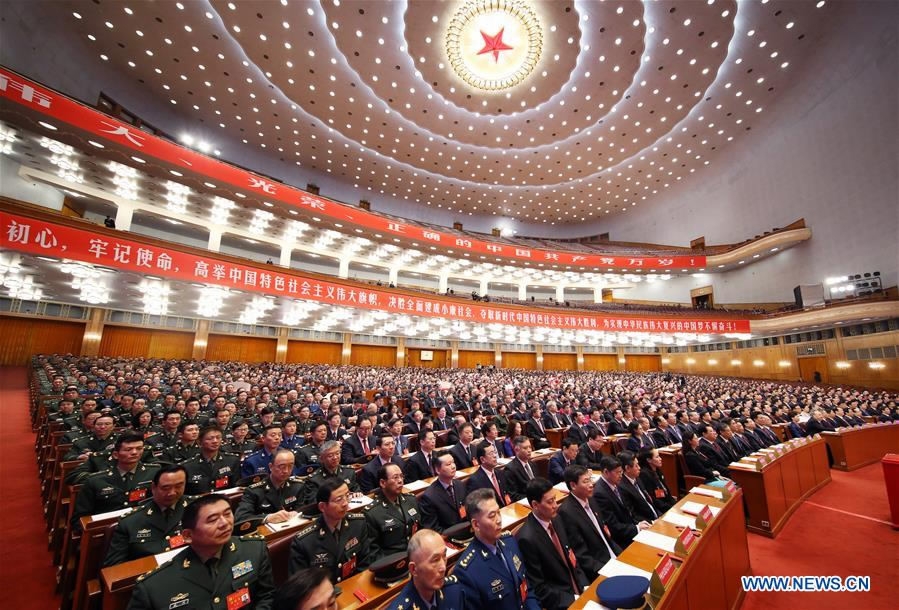
19th CPC National Congress Closing Ceremony. / Xinhua Photo
19th CPC National Congress Closing Ceremony. / Xinhua Photo
So what is the difference between the roles of what the CPC and foreign political parties play in their own countries? How does the CPC’s ruling philosophy compare with that of foreign political parties?
"The Chinese Communist Party is not a private part. It is for the public interests of the whole Chinese nation. The west cannot understand the meaning of that. And the leadership of the Communist Party is written in China’s Constitution, so that is different from any party in other countries," Wang said. "The Communist party is not just a private power nor just running power temporarily. So the translation confuses many people about the Communist Party of China."
"Some people even suggest that we should change the translation, like the ‘国民党’ which originally is translated into ‘Chinese Nationalist Party’ but now ‘KMT’," said Wang.
Communication among Parties
The CPC has just hosted a special “high-level meeting” - a “Dialogue with World Political Parties”.
"China obviously wants to reach out to the widest range of opinion, in order to know what the thinking is elsewhere. So it was a dialogue, and it was not called “China will lecture to the world's political parties”. It was called a “dialogue”, and a lot of people expressed their views quite firmly at the meeting," John Ross said, former director of Economic and Business Policy for the Mayor of London.
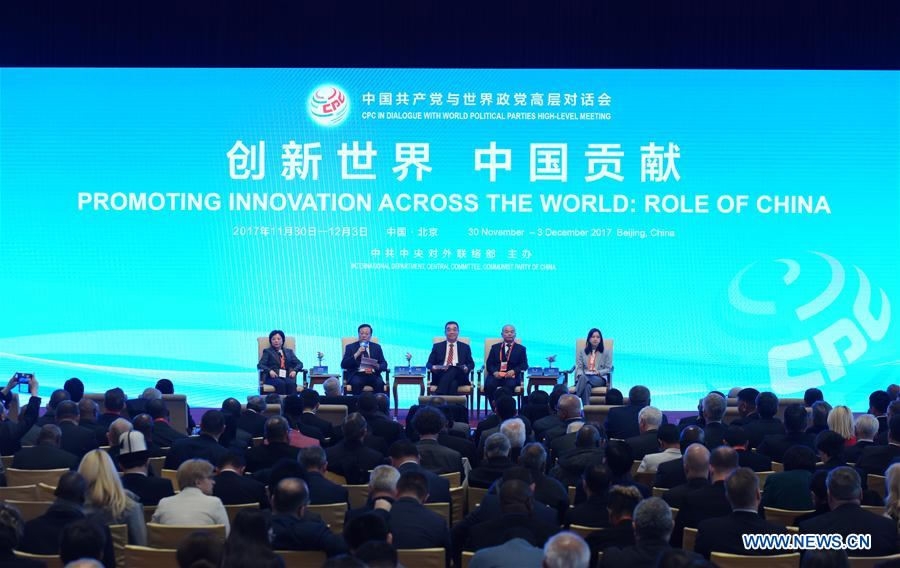
Seminar "Development of China: New Era, New Vision" is held for the thematic conference "Communist Party of China and the World in the New Era" during the CPC in Dialogue with World Political Parties High-Level Meeting in Beijing, capital of China, Dec. 2, 2017. / Xinhua Photo
Seminar "Development of China: New Era, New Vision" is held for the thematic conference "Communist Party of China and the World in the New Era" during the CPC in Dialogue with World Political Parties High-Level Meeting in Beijing, capital of China, Dec. 2, 2017. / Xinhua Photo
The CPC invited representatives of nearly 300 parties and political organizations from more than 120 countries. In the “Dialogue”, the CPC shared its development model with other political parties, as well as learned from their experiences and practices.
How can communication among political parties influence world politics?
R.L. Kuhn raised this question to Mr. Ross.
"So first, China itself, the CPC itself, needs to learn from what are these different opinions that exist in other countries. And secondly, it needs to explain its positions to parties in other countries, because there can be misunderstandings," Ross responded.
"There are two different things which can exist in politics. One is there can be real differences of interest, which you have to deal with. The second is there can be misunderstandings. And the two can get in the way of each other, because a problem which could be solved might not be solved because both sides misunderstand what was going on," Ross said. "Therefore the question of clarity and explaining what one’s position is to other people [or parties] so that everybody understands is extremely important.”
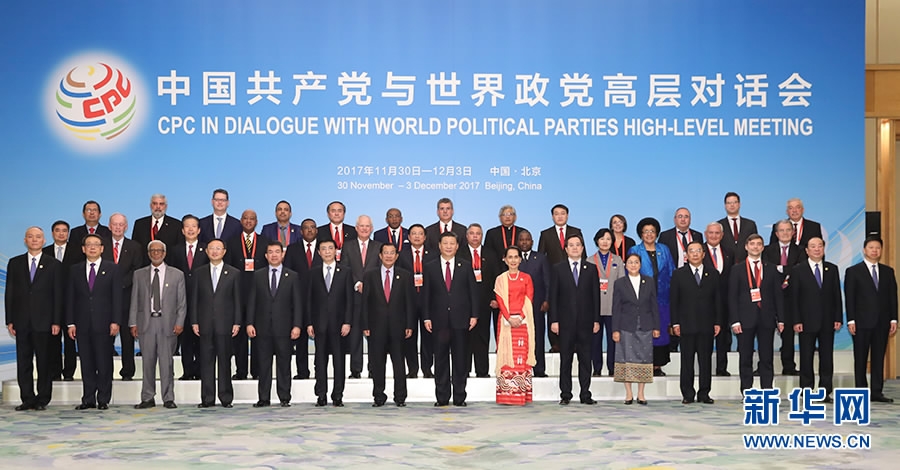
President Xi attended CPC in Dialogue with World Political Parties High-Level Meeting in Nov. 2017. / Xinhua Photo
President Xi attended CPC in Dialogue with World Political Parties High-Level Meeting in Nov. 2017. / Xinhua Photo
Is China developing intra-party democracy?
In the past, it was said that although there were deliberations both in Party Congresses and National People’s Congresses, these deliberations were more form than substance. The events were more rubber stamps for decisions that had been already made by very few leaders.
“I think in the past three decades and more, China’s democratic process has moved very rapidly. In the past, this process would have been unimaginable for many Chinese people," Xie said.
R.L. Kuhn discussed this topic with Xie Chuntao, member of administration committee of the Central Party School.
In recent years, are deliberations at these congresses becoming truly substantive, is intra-party democracy becoming true?
“I think in the past three decades and more, China’s democratic process has moved very rapidly. In the past, this process would have been unimaginable for many Chinese people. I would like to give an example of my own experience," Xie said.
"I used to be vice mayor of a city in Zhejiang Province. One of the city’s counties was the first to set up a village committee supervision commission system created by a village. The village, as a collective economy, was very rich," Xie said. "But the administration of the village had been problematic. One of the cadres of the village had been jailed for corruption. So the villagers didn’t trust the village committee. The villagers believed the committee would squander the village’s money."
"The county leader helped the villagers work out a way to solve their problem. A village affairs supervision commission was elected to oversee the head of the village committee elected by the villagers through universal suffrage," said Xie.
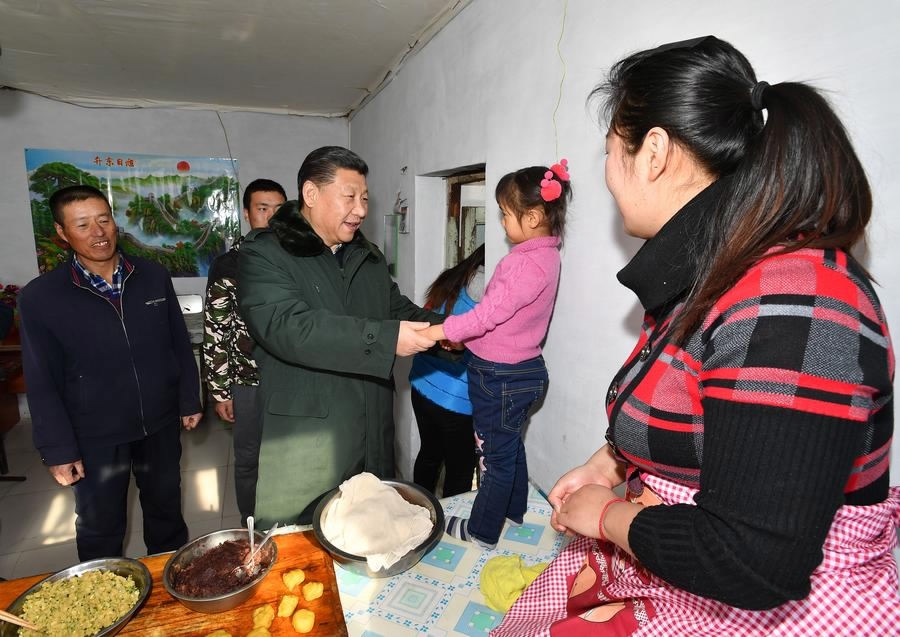
Chinese President Xi Jinping visits the home of villager Xu Xuehai in Desheng village, Xiaoertai township of Zhangbei county in North China's Hebei province, on Jan 24, 2017. / Xinhua Photo
Chinese President Xi Jinping visits the home of villager Xu Xuehai in Desheng village, Xiaoertai township of Zhangbei county in North China's Hebei province, on Jan 24, 2017. / Xinhua Photo
"I went to that village several times. The villagers told me they were trying to stop self-administration by villagers turning into self-administration by village officials. After this commission was put in place, many problems that the villagers had worried about disappeared. For example, the director of the village committee would host a meal to receive a guest," Xie said.
"The director might only spend 200 yuan. But his own signature is not enough to reimburse that cost. The signature of the supervision commission director is also needed. And after reimbursement, the accounts need to be published for all the villagers. This was taking place in 2004," Xie added.

